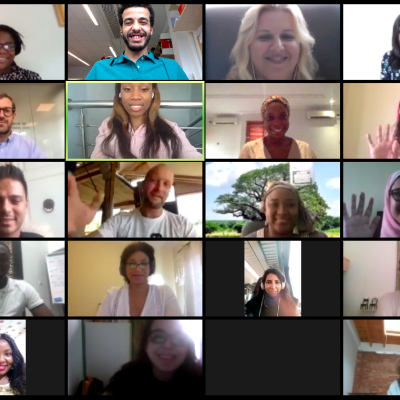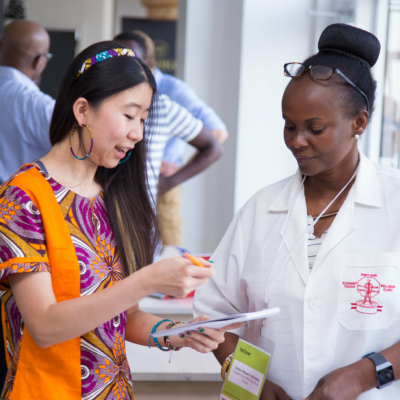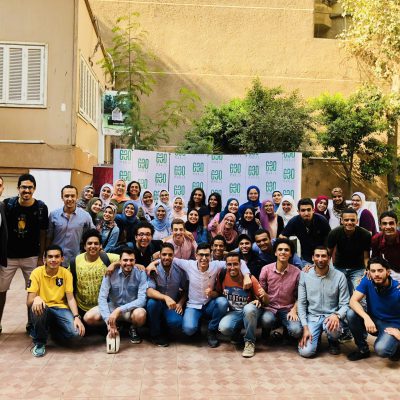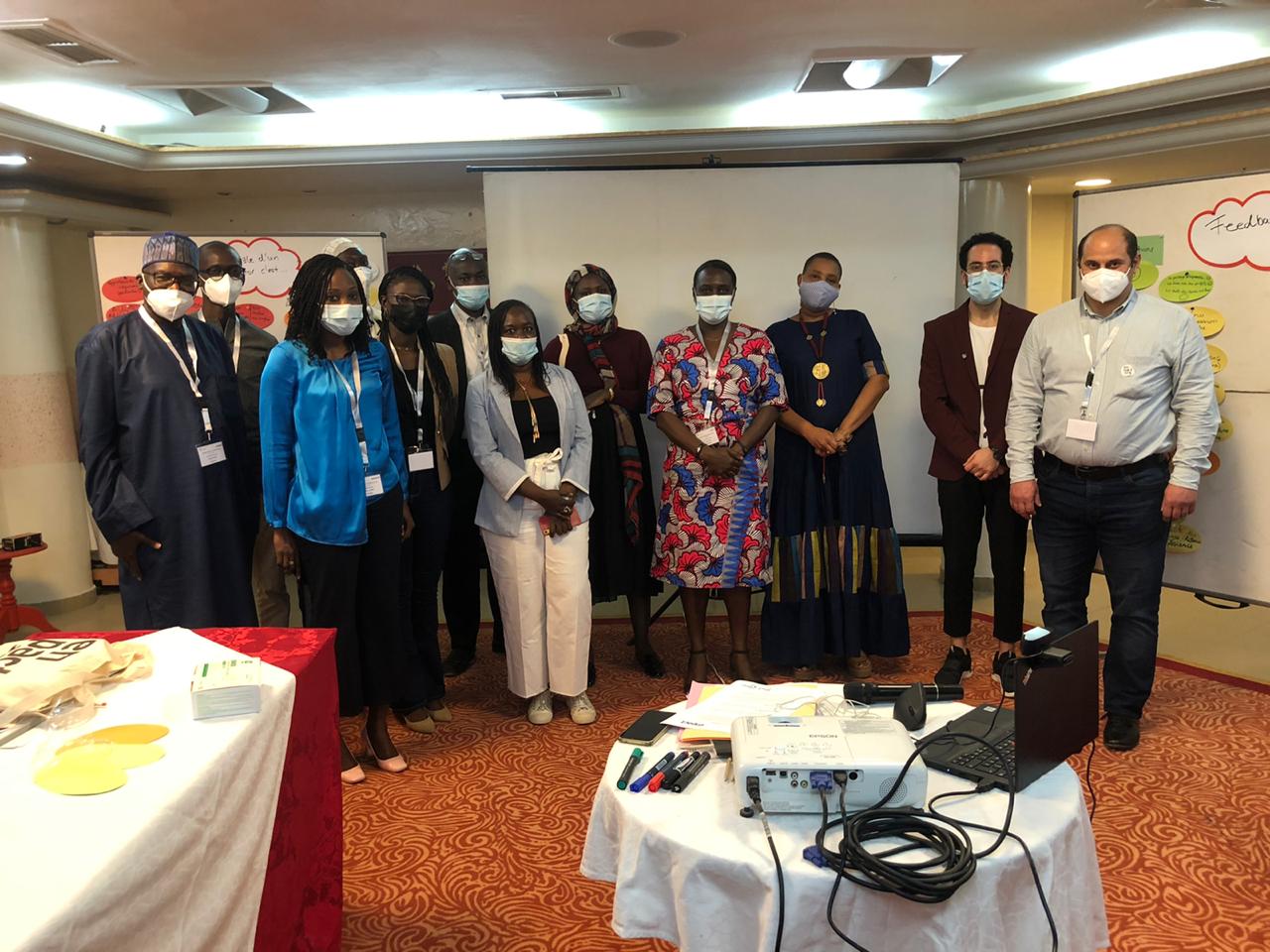
Coming Back to Build: Joelle Sow, Consultant and Coach at Senstartup
Of Senegalese origin, Joëlle SOW began her career as a salesperson in an IT company in France, where she remained for 20 years. One day, she took the plunge and founded her own patrimonial consulting company. This has led her to follow a coaching course. Her journey took an entrepreneurial turn and she co-creates a startup GUTY and an association OFEI (Organisation Française des Entreprises Innovantes) which aims to promote innovation and digital transformation in Africa. In 2019, OFEI in partnership with OIF is setting up the Emerging Technologies Awareness Programme to train 260 young people in Senegal, Ivory Coast, Togo, Gabon, Madagascar and Egypt, who today have completely transformed their activities, and became real business leaders and have gained confidence. This journey was decisive and convinced her to return to Africa, and especially to Senegal, her country of origin, to help entrepreneurs acquire skills and teach them how to structure themselves, develop a business, talk to investors, etc.
Today, she feels she has found her place as a consultant and coach for startups at Senstartup, a support structure for the Senegalese entrepreneurial ecosystem based in Dakar. Here is her story.
What was your motivation for launching your business/starting your career/acquiring this role?
As a specialist in professional training, training and development is a necessity. You have to explore. I didn’t feel like an entrepreneur but very quickly I realized that my true calling is entrepreneurship and business development. This is what pushed me to perfect my questioning skills – How can I get to know my client better? How to gather more information from my client? How to convince him to choose me? So I needed training and coaching came naturally to me. I developed personal skills, especially in team management and cohesion, in order to better motivate them and perform better. In coaching, I also saw myself in a position where I could accompany other people and develop relationships, a network, or open up opportunities.
How do you perceive the current state of your industry in your country?
We are in a region of the world where the employment issue is very strong. The continent is young and by 2035, statistics show that 60% of the population will be between 19-25 years old. Youth should be seen as an opportunity. But the challenges are numerous. We must invent the conditions for these young people to find or have a decent job. Entrepreneurship and self-employment are one of the solutions.
The current structures, as they have been imagined, are not adapted to anticipate everything that needs to be done for the continent’s young people. They do not fulfil their roles and are not effective because they are too short term.
There is therefore a real need to update the education system so that it corresponds to the realities and needs of the market. We need to build on the long term (5-10 years) so that we can see things being put in place, structured and sustainable. We must put in place performance structures with results so that we can have success stories that will make Africa proud.
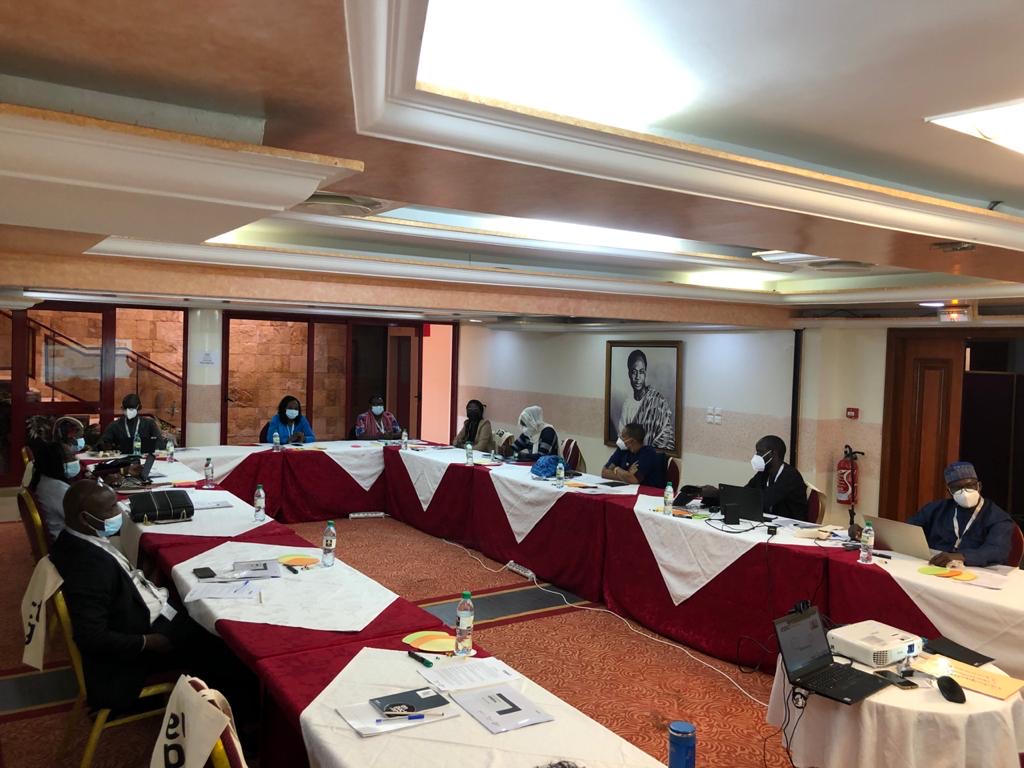
What impact has the pandemic had on your personal and professional life? How did it affect your business?
COVID-19 has reoriented my career. I used to live in Europe, now I live in Africa. The impact is positive because it has opened up other horizons and offered a beneficial return to my roots because I have been able to bring to many people all the skills I have acquired elsewhere.
The fact that my own organization did not manage to develop to the level of our ambitions because of the pandemic is not problematic. On the contrary, I have learned from it and I am very confident about the future.
COVID-19 has shown that startups can be useful in difficult times. Digital technology has changed our habits.
What advice do you have for founders/facilitators in the ecosystem?
For startup founders:
- Be convincing and convinced that your solution is going to change the world and bring about an improvement, a radical change in an industry
- Listen to your customers and invent with them the right experience that will make your product or service a phenomenal success
- Partner with people who have experience and who will help you to develop in the long term,
- Get help! In pre-incubation, in incubation. Have mentors.
- Try to develop yourself in a personal way
For ecosystem facilitators:
- Put in place the conditions and structures that make it easy for startups to reach their goals and grow to last. Create the mechanisms and methodologies to develop early stage startups and set the conditions for the development of more mature startups.
- Better coordination and aggregation of support services so there are levels and that at each level there are actors who offer various solutions for the sustainability of enterprises. Thinking long-term in support.
We’re grateful for the opportunity to have this chat with Joelle Sow, and excited to announce that enpact is now partnering with SenStartup to bring together our experiences and develop our respective missions of startup support and ecosystem integration. Through this strategic collaboration, we’re planning to provide more comprehensive support services for startups in the entrepreneurial ecosystem in Senegal.
Quentin is a former Program Manager at enpact, responsible for planning & coordinating Program Designers’ Lab, Train the Mentor and International Mentoring Programs in West Africa & Europe, Ghana, Sénégal, Uzbekistan and India.
